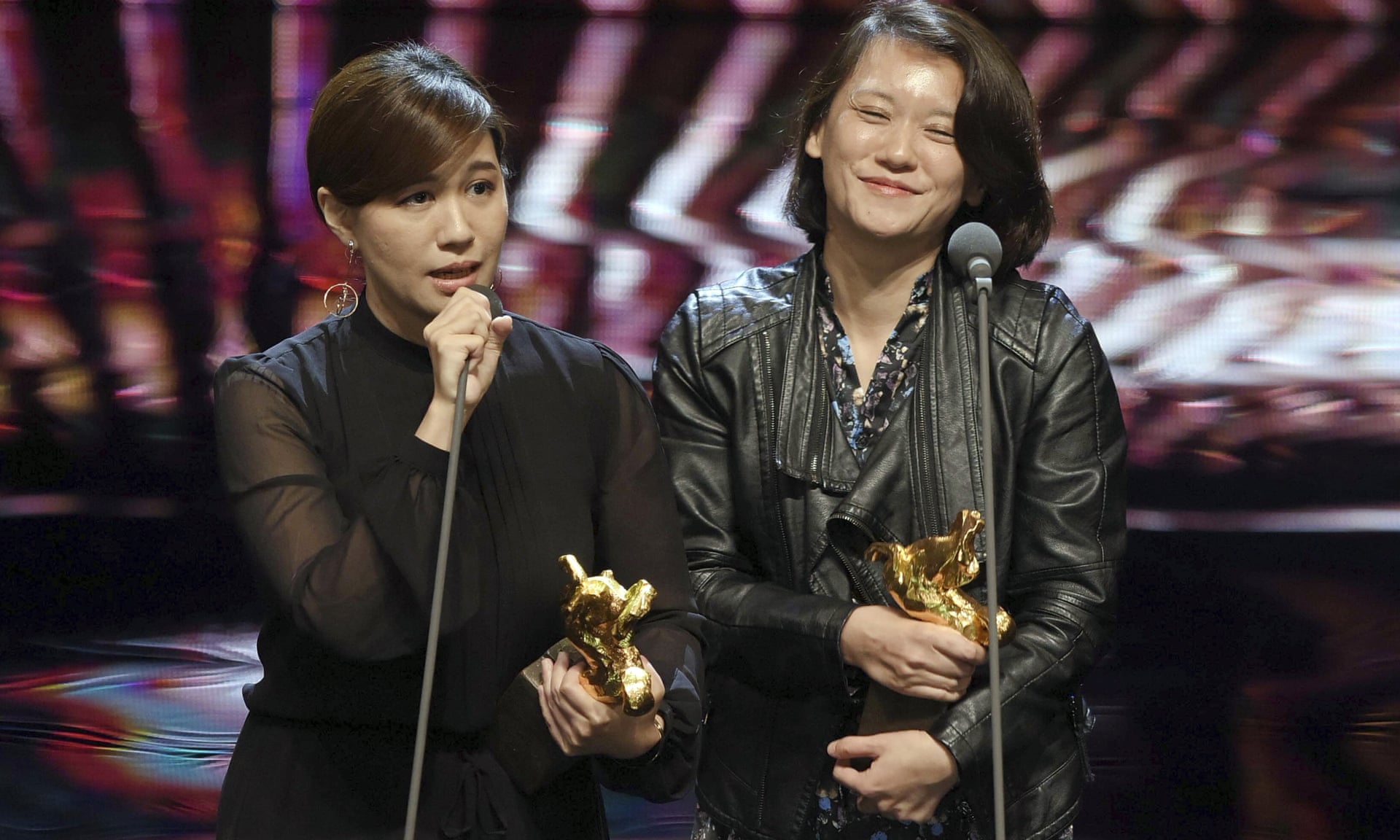Speech by documentary filmmaker Fu Yue censored after she calls for Taiwan to be recognised as an independent entity
By Benjamin Haas in Seoul
Taiwanese director Fu Yue, left, delivers a speech next to producer Hong Ting Yi after she won best documentary at the 55th Golden Horse Awards in Taipei.
The Chinese-language version of the Oscars, the Golden Horse Awards, have become the latest flashpoint in tense relations between China and Taiwan after a film director questioned the island’s political status.
Documentary filmmaker Fu Yue called for Taiwan to be recognised as an “independent entity” during her acceptance speech, fighting back tears as she said, “this is my biggest wish as a Taiwanese”.
Her speech was quickly censored on Chinese television and streams, with the coverage going black.
For decade China has claimed Taiwan as part of its territory, but the island has been independently ruled since 1949, and in the past two decades has become a flourishing democracy in contrast to Beijing’s authoritarian government.
For decade China has claimed Taiwan as part of its territory, but the island has been independently ruled since 1949, and in the past two decades has become a flourishing democracy in contrast to Beijing’s authoritarian government.
Chinese officials often bristle at suggestions of Taiwanese independence, and have gone to great lengths to poach Taiwan’s diplomatic allies.
After Fu’s comments, a mainland Chinese actor, Tu Men, echoed Beijing’s line on the status of the island, referring to it as “Taiwan, China”, drawing a rebuke from Taiwanese president Tsai Ing-wen.
“We have never accepted the phrase “Taiwan, China”, and we never will accept this phrase, Taiwan is simply Taiwan,” Tsai wrote in an online post.
“We have never accepted the phrase “Taiwan, China”, and we never will accept this phrase, Taiwan is simply Taiwan,” Tsai wrote in an online post.
“I am proud of yesterday’s Golden Horse Awards, which highlights the fact that Taiwan is different from China, and our freedom and diversity is why this is a land where artistic creations can be free.”
Chinese authorities have banned their citizens from participating in the ceremony next year, according to reports in Taiwanese media.
The debate comes ahead of local elections in Taiwan, which are widely seen as a referendum on Tsai’s pro-independence Democratic Progressive party (DPP).
Chinese authorities have banned their citizens from participating in the ceremony next year, according to reports in Taiwanese media.
The debate comes ahead of local elections in Taiwan, which are widely seen as a referendum on Tsai’s pro-independence Democratic Progressive party (DPP).
The controversy quickly spread online, where each side took turns praising or condemning Fu’s actions.
Chinese actress Fan Bingbing, who disappeared earlier this year only to reemerge after admitting to tax evasion, used her now mostly dormant social media account to post a map of China with the phrase “China cannot lose one bit of itself”.
The image was first posted several years ago by the Communist Youth League, and nationalism has seen a sharp rise under Xi Jinping.
That national fervour may have caused a Chinese runner first place in the Suzhou marathon, after organisers tried to thrust a Chinese flag into her hand during the final stretch of the race.
That national fervour may have caused a Chinese runner first place in the Suzhou marathon, after organisers tried to thrust a Chinese flag into her hand during the final stretch of the race.
After two failed attempts and one Chinese flag thrown to the ground – which itself can result in a three-year prison sentence – the Chinese runner eventually came second behind her Ethiopian rival, trailing by five seconds.
